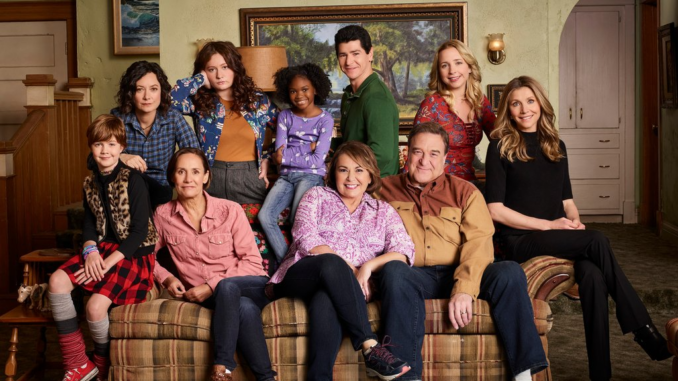
When we talk about groundbreaking sitcoms, many names come to mind, but Roseanne holds a special place in television history. It’s a show that didn’t just entertain millions of viewers, but also challenged social norms and tackled issues that other shows of its time wouldn’t dare to touch. It’s a story of a working-class family from Lanford, Illinois, led by a sarcastic, outspoken mother, Roseanne Conner. But what makes Roseanne so special? Let’s dive into how it revolutionized the TV landscape and became one of the most iconic sitcoms of all time.
The Working-Class Revolution
In the late 80s and early 90s, TV was filled with shows about idealized families—perfect homes, perfect parents, and perfect children. Roseanne flipped that script. It portrayed a middle-class family struggling with financial instability, family drama, and real-life issues. The Conners weren’t rich, they weren’t perfect, and they weren’t afraid to argue, make mistakes, or face the challenges that millions of viewers could relate to.
Before Roseanne, families on television were often portrayed as “cookie-cutter” ideals—characters living in luxurious homes without showing the messy parts of life. The Conners’ home was small, their financial struggles were real, and their problems were relatable. This was a major shift in how TV depicted working-class life, which had rarely been shown with such rawness.
Breaking Taboos: Tackling Real-World Issues
What truly set Roseanne apart was its fearlessness in addressing social issues. The show didn’t shy away from controversial topics. Roseanne and her family dealt with themes such as unemployment, body image, LGBTQ+ rights, politics, and mental health. These were issues that other shows typically ignored or portrayed in a sanitized way, but Roseanne tackled them head-on.
Perhaps one of the most iconic moments was in the season 5 episode where Roseanne’s character comes out as a feminist, challenging gender roles and stereotypes. Roseanne, as the matriarch of the family, was a trailblazer in redefining the role of women on television, showing that they could be strong, flawed, and unapologetically themselves.
The show also became one of the first to depict a realistic portrayal of a working-class woman trying to juggle a job, a family, and the complexities of life. Roseanne was not only funny; she was a symbol of resilience for millions of viewers.
The Cultural Impact of Roseanne
It’s easy to dismiss Roseanne as just another sitcom, but the show’s cultural impact cannot be overstated. It became a touchstone for viewers who had never seen their lives represented on screen before. Families from all walks of life could identify with the Conners. They were funny, they were flawed, and they were relatable.
Roseanne was not just a sitcom; it was a voice for the voiceless. It spoke to working-class America, showing them that they weren’t alone in their struggles. The show’s ability to balance humor with heavy topics made it both entertaining and thought-provoking. It was revolutionary in how it reflected the reality of family life, warts and all.
The Legacy of Roseanne
Today, Roseanne remains one of the most influential sitcoms of all time. Its legacy lives on not only through reruns and the recent revival but also in the way it reshaped the sitcom genre. The show was a pioneer for future shows that tackled real-world issues with honesty and humor. It proved that comedy could be both entertaining and meaningful, and that sitcoms didn’t have to be perfect to be loved.
Roseanne will always be remembered for its boldness and its unflinching portrayal of a family that was just like millions of others across America. It wasn’t about wealth or perfection—it was about real life. And for that, it will always have a place in television history.
